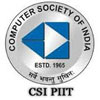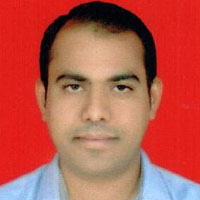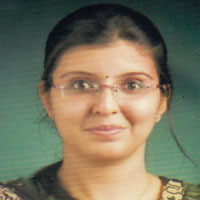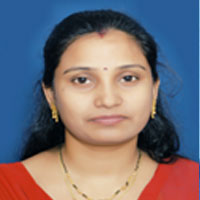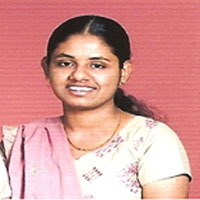Introduction
Overview :
Electronics & Telecommunication Engineering (ETE) serves as a backbone of modern advancements, driving innovations in communication systems and electronic technologies crucial for industries like IT, healthcare, and defense. At Pillai College of Engineering (PCE), the program blends theoretical concepts with hands-on training in areas such as digital communication, VLSI design, and wireless networks. By focusing on cutting-edge technologies, the course equips students with the expertise to excel in high-demand roles across diverse sectors, meeting the growing needs of Electronics & Telecommunication Engineering industries.
Program Objectives & Outcomes:
The Electronics & Telecommunication Engineering program at Pillai College of Engineering aims to:
- Provide a strong foundation in mathematics, science, and engineering to solve complex problems in Electronics & Telecommunications.
- Develop analytical skills to innovate in telecommunications technologies.
- Keep students updated on the latest advancements in electronics and communication systems.
- Foster leadership, teamwork, and adaptability to evolving engineering environments.
- Raise awareness of ethical, social, and environmental responsibilities.
Program Outcomes (POs): Graduates will be able to apply engineering knowledge to complex problems, design sustainable solutions, use modern tools, and address societal, health, and safety challenges. They will work effectively in multidisciplinary teams, communicate technical concepts, and engage in lifelong learning.
Program Specific Outcomes (PSOs): Graduates will apply core knowledge in electronics, network analysis, and communication systems to solve industry problems, use modern engineering tools, and work collaboratively to provide socially responsible solutions in the field of telecommunications and electronics.
Electronics & Telecommunication
Definition and Scope:
The Bachelor of Engineering in Electronics & Telecommunication (EXTC) at Pillai College of Engineering provides students with a deep understanding of electronic systems and telecommunication networks. The interdisciplinary curriculum focuses on communication technologies, digital systems, and circuit design. Students gain expertise in areas like wireless communication, signal processing, and embedded systems. PCE stands out as a leading institute for Electronics & Telecommunication Engineering in Navi Mumbai, offering comprehensive training that equips graduates with the skills needed to excel in the fast-evolving telecom and electronics industries.
Vision:
- Strive towards producing world class engineers who will continuously innovate, upgrade telecommunication technology and provide advanced, hazard-free solutions to the mankind.
- Inspire, educate and empower students to ensure green and sustainable society.
Mission:
- Benchmarking against technologically sound global telecommunication institutions with a view towards continuous improvement.
- Continually exposing students to scenarios that demand structuring of complex problems and proposing solutions.
- Educate students and promote values that can prevent further degradation of our planet. Becoming responsible citizens genuinely concerned with and capable of contributing to a just and peaceful world.
Programs Offered at Pillai College of Engineering
Bachelor of Electronics & Telecommunication Engineering Course Structure
The Electronics & Telecommunication Engineering program at Pillai College of Engineering provides a comprehensive curriculum that blends analog and digital electronics, circuit theory, semiconductor devices, and microprocessor systems. Students will also gain proficiency in telecommunication technologies, signal processing, and wireless communication. The program incorporates hands-on projects and laboratory sessions to help students design, implement, and optimize telecommunication systems and electronic devices. It prepares graduates for careers in telecommunications, embedded systems, and network engineering.
| Affiliated to | Duration | Academic Year | Intake | Theory Exam | Curriculum |
|---|---|---|---|---|---|
| University of Mumbai | 4 years, Full Time | 2 semesters each | 180 | University of Mumbai | Sem I - VIII |
Unique Features of the Program
Pillai College of Engineering is recognized as a leading institution for Electronics & Telecommunication Engineering, offering specialized training to students. The program includes the following key features:
Department Level Specialization
- Smart Robotics and IoT driven Application Development
- Product Design
- VLSI Chip Design Technology
- Advanced Communication System
- Cloud Computing
- Data Science
Institute Level Specializations
- Entrepreneurship Development and Management
- Business Management
- IP Management
- Bioengineering
- Bio Instrumentation
- Engineering Design
- Sustainable Technologies
- Contemporary Studies
- Art and Journalism
- Applied Science
- Green Technologies
- Maintenance Engineering
- Life Skills
- Environment & Safety
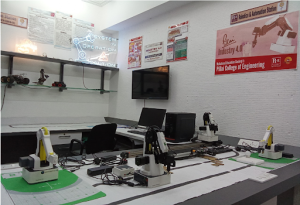
Research Areas:
Antenna Design, Communication Networks, Digital Communication, Signal Processing, Mobile Communication, Speech and Biomedical Signal Processing, Medical and Document Image Processing, Communication Engineering, Digital Signal Processing, Fiber Optic Communication, Wireless Communication, Communication Systems, Optical Fiber Communication, Data Compression
Admission Process
Admission Requirements
To apply for the Electronics & Telecommunication Engineering program at Pillai College of Engineering, candidates must meet the following criteria:
- Eligibility: Candidates must have completed 12th grade with Physics, Chemistry, and Mathematics as core subjects, with the required minimum percentage.
- Entrance Exams: A valid score in MHT-CET (Maharashtra Common Entrance Test) or JEE Main is mandatory. These exams are used for merit-based selection into the program.
- Application Process: Applications are processed through the Centralized Admission Process (CAP), managed by the Directorate of Technical Education (DTE), Maharashtra. After clearing the entrance exams, students can select Pillai College of Engineering during CAP counseling.
- Cutoff: The cutoff for Electronics & Telecommunication Engineering for the 2024-25 academic year was 85.342 percentile.
Required Documents:
The documents necessary to complete the admission process include the following:
| Sr. No. | Documents |
|---|---|
| 1 | CAP Allotment Letter (or FC Registration Form for Institute-Level/Against CAP Admission) |
| 2 | S.S.C. Marksheet & Passing Certificate |
| 3 | H.S.C. Marksheet & Passing Certificate |
| 4 | Transfer/Leaving Certificate |
| 5 | Caste Certificate (if applicable) |
| 6 | Non-Creamy Layer Certificate (for DT/VJ, NT, OBC, SBC categories) |
| 7 | Migration Certificate (if applicable) |
| Domicile Certificate | |
| 8 | Aadhar Card Copy |
| 9 | Income Certificate (if applicable) |
| 10 | Anti-Ragging Affidavit (signed and submitted online) |
| 11 | University of Mumbai Pre-Admission Online Registration Form |
Note: Students are required to submit two attested photocopies of each document. The originals will be returned after course completion, so it is advisable to keep multiple copies. All documents must be scanned and uploaded for processing, including scholarship applications.
Application Timeline
The admission process for Electronics & Telecommunication Engineering at Pillai College of Engineering follows a merit-based system using MHT-CET or JEE Main scores. Key milestones are:
- MHT-CET Registration: Typically opens in early January.
- MHT-CET Exam: Held in May.
- CAP Rounds: Begin after exam results, usually in June-July.
- Admission Deadlines: Vary based on CAP rounds and JEE Main results.
Students should regularly check the official MHT-CET website for updates to stay on track during the application process.
Fee Structure:
Fee Structure For Maharashtra State Board Students
| YEAR | GENERAL | OBC | SC/ST | SBC/DT/VJ/NT | TFWS | J&K |
|---|---|---|---|---|---|---|
| FIRST YEAR ENGINEERING TOTAL FEES (Rs.) | 1,37,360/- | 79,534/- | 4,360/- | 21,708/- | 21,708/- |
Fee Structure For Other Than Maharashtra State Board Students
| YEAR | GENERAL | OBC | SC/ST | SBC/DT/VJ/NT | TFWS | J&K |
|---|---|---|---|---|---|---|
| FIRST YEAR ENGINEERING TOTAL FEES (Rs.) | 1,38,360/- | 80,534/- | 5,360/- | 22,708/- | 22,708/- | 29,360/- |
| DIRECT SECOND YEAR ENGINEERING TOTAL FEES (Rs.) | 1,38,360/- | 80,534/ | 5,360/- | 22,708/- | -- | -- |
Exam Preparation Resources:
To prepare for MHT-CET and JEE Main for Electronics & Telecommunication Engineering, students can refer to:
- Textbooks: NCERT Physics, Mathematics, and Chemistry for a strong foundation.
- Reference Books:
- Physics: Concepts of Physics by H.C. Verma
- Mathematics: Objective Mathematics by R.D. Sharma
- Chemistry: Organic Chemistry by Morrison and Boyd
- Online Resources: Websites like Khan Academy, BYJU’s, and Unacademy for video lessons and practice.
- Previous Year Papers: Analyze past papers for a better understanding of the exam pattern.
- Mock Tests: Regular mock tests to improve time management and exam performance. Visit mockcet.mes.ac.in for practice.
Training and Development Opportunities
Internships and Industry Collaboration
Pillai College of Engineering (PCE) offers extensive internship and industry collaboration opportunities for Electronics & Telecommunication Engineering students. The college has partnered with top companies to provide students with practical and theoretical knowledge in their field. These internships help students gain hands-on experience and industry insights. The Placement Cell at PCE plays a crucial role in connecting students with leading employers in the electronics, telecommunication, and IT industries.
Best Electronics & Telecommunication (EXTC) Training Institutes in Navi Mumbai Region
- Skill Enhancement programs facilitated by PCE
- IIT Bombay Remote Center: Our College is a Remote center for IIT Bombay with a 4-star rating. It helps keep students and faculty updated with contemporary technical skills in core Engineering and Science subjects both physically and virtually.
- SAP Education: MES has partnered with SAP Education Germany to offer SAP training and certification courses at the Panvel campus. SAP is used by 9 out of 10 Fortune 500 companies, and the certification is a highly desirable skill for top companies.
- Value-added courses:
The institute conducts various value-added courses to enhance the learning experience, making it one of the best Electronics & Telecommunication (EXTC) institutes in Panvel & Navi Mumbai. - Certification Programs:
- Finite Element Analysis
- Python and Development of Web Application using Flask Framework
- Internet of Things and Its Applications
- CATIA V5 Mechanical Designer
- Complete Network Fundamentals: Mastering CCNA
- Mobile Application Development
- Augmented Reality and Virtual Reality
- Introduction to Remote Sensing & GIS
- Global Certification Program on Solidworks at the Associate (CSWA) and Professional (CSWP) levels
Student Clubs:
- IEEE PCE : The Institute of Electrical and Electronic Engineers is the inspiration of a global community & the trusted voice of engineering, computing and technology information societies around the world. PCE works directly with IEEE to provide students with a basic level of technical understanding as well as to stimulate a natural curiosity for their profession. PCE institution is proud to be affiliated with the IEEE so that we may provide students an in-depth theoretical knowledge to further develop an intuitive practical approach in the field of technology.
- IETE PCE: The IETE SF (Institution of Electronics Telecommunication Engineers Student forum) formerly ETSA PCE is committed to fostering a vibrant community of students interested in the fields of Electronics & Telecommunication. The committee actively organizes a variety of initiatives, including workshops, seminars, events, and Competitions aimed at promoting hands-on learning and practical knowledge.
- SWE PCE : SWE – PCE is an official Society of Women Engineers (SWE) Global Affiliate Group, connecting us to more than 70 SWE affiliates around the world.The mission of the recognized Affiliate group is to empower women to achieve full potential in careers as engineers and leaders, expand the image of the engineering profession as a positive force in improving the quality of life, and demonstrate the value of diversity and inclusion.SWE PCE is conducting workshops and awareness programs on Robotics, Artificial Intelligence, Machine Learning and STEM for increasing interest in engineering and technology.
Career Prospects for Graduates
Job Opportunities After Graduation
Electronics & Telecommunication engineering graduates at Pillai College of Engineering have immense demand in different fields of industries. Telecommunication engineering graduates and Electronics engineering graduates are highly needed by the industry players viz., telecommunications, IT, electronics manufacturing, and R&D. All these professionals who are trained from a telecommunication engineering course and Electronics engineering course find themselves well-equipped to pursuing diverse roles including
The fast-changing Indian technology landscape provides a lot of career options for professionals who have a strong background in Electronics & Telecommunication engineering in top multinational companies and government departments or start-ups.
After completing Bachelor of Electronics & Telecommunication at our College in Navi Mumbai, our alumni are well trained and become industry ready in totality.
- Average package offered for Electronics & Telecommunication Engineering graduates at PCE is around 5 LPA.
- Highest package offered for an Electronics & Telecommunication Engineering graduate from Pillai College of Engineering is 11 LPA.
- Past placements records of Electronics & Telecommunication Engineering graduates at PCE:
- Bhushan Deshmukh placed in Abode Real estate, Dubai with 11 LPA.
- Rajashree Thatikonda and Mahima Verma, Batch of 2024, got placed at ERICSSON with a CTC of 7.5 LPA.
- Yash Jadhav, Sudarson Halder and Shivani Shetty, Batch of 2024, got placed at Tata power, Campus credentials and Swan Solutions with 7 LPA.
- Ganesh Waghmode and Raj Patil placed at Paras Anti Drone with a CTC of 5.7 LPA.
- Viraj Narendra Rane, Batch of 2024, got placed at TATA Communications with a CTC of 5.25 LPA
- Students are also placed at core companies like Reliance Retail and Reliance Jio with 4-5 LPA.
Alumni Success Stories

Mr. Abhishek Data
Programmer Analyst at Diamond Resorts International
He completed his B.E. in Electronics & Telecommunication Engineering in 2014 and Master’s Degree in Electrical Engineering from Syracuse University in 2016.He has worked as frontend engineer at Stanford University School of Medicine and currently working as a Programmer Analyst at Diamond Resorts International, Las Vegas, Nevada, United States. He is a techno-functional professional with Domain expertise: Healthcare, Timeshare, Hospitality and property management. He has more than 4 years’ experience working on developing front end screens to support business functionality. He is well versed in multitasking different projects and working in an onshore – offshore model and an excellent assertive communicator.

Mr. Anand Sridharan
Software Development Manager – Amazon Gen AI Privacy, Amazon.
He completed his B.E. in Electronics & Telecommunication Engineering in 2014 and Master of Science (MS), Management Information Systems from Texas A&M University in 2018. He worked as a Manager 2 , Software Engineering at Austin, Texas, United States and currently working as a Software Development Manager – Amazon Gen AI Privacy, Amazon, Bellevue, Washington, United States where he is Helping build the foundational LLM models at Amazon Generative AI. He has a proven track record of building high performance Engineering teams.

Mr. Saurabh Mahajan
Senior AI Engineer at Boston Consulting Group (BCG)
He completed his B.E. in Electronics & Telecommunication Engineering in 2016 and Master of Science (MS), Electrical Engineering and Computer Science from University of Michigan in 2018 where he was a Representative at Rackham student government and president of Indian Student Association. He worked as a Research Associate II at University of Michigan , Senior Software Engineer (Market Solution ) at Groundspeed Analytics (Michigan, USA) and currently working as Senior AI Engineer at Boston Consulting Group (BCG) in Colorado, United States.

Mr. Vishal Mishra
Sr. IP Logic Design Engineer at Intel Corporation
He completed his B.E. in Electronics & Telecommunication Engineering in 2018 and Master of Technology (M.Tech.) in VLSI Design from Vellore Institute of Technology (VIT) in 2021, earning a Gold Medal for his outstanding academic performance. He secured AIR 119th in 4th year Indian Engineering Olympiad Organised by Indian Society for Technical Education ( ISTE ) .Currently working in Intel Corporation, Bengaluru as Sr. IP Logic Design Engineer since July 2021.
Why Choose Pillai College of Engineering for Electronics & Telecommunication Engineering
Quality of Education at PCE
PCE is among the best colleges for B.Tech. in Electronics & Telecommunication Engineering, offering a curriculum that adheres to national benchmarks and ensures a high-quality learning experience. This focus on excellence enhances graduates’ employability and credibility in the professional world.
Affiliation and Approvals:
- Affiliated with the University of Mumbai
- Approved by AICTE, New Delhi
- Recognized by the Government of Maharashtra and DTE
- Granted Autonomous Status by UGC from 2022-23
- 4 UG courses permanently affiliated with the University of Mumbai
Accreditations:
- NAAC A+ grade
- 3 UG courses re-accredited in 2015 and 2018 by NBA
State-of-the-Art Facilities
PCE offers an expansive 16-acre lush green campus with modern infrastructure, including:
- Smart Classrooms
- Auditorium and Seminar Halls
- E-Learning Studio
- Research Centers and Language Labs
- Pillai Centre of Innovation and Entrepreneurship
Green Initiatives:
- E-waste Recycling
- Rainwater Harvesting
- Solar Power Generation
- Plastic Bottle Recycling Machines
These resources ensure students receive a holistic education in a conducive learning environment.
Undergraduate Labs for Electronics & Telecommunication Engineering
The Electronics & Telecommunication Engineering Department at Pillai College of Engineering offers the following state-of-the-art laboratories to enhance practical learning:
- Microprocessor and Microcontroller Lab
- Communication Lab
- IoT and Application Development Lab
- Industry 4.0 Lab
- Digital Communication Lab
- Digital Signal Processing Lab
- Project Lab
- Research Lab
Frequently Asked Questions
To be eligible for the Bachelor of Technology Program in Electronics & Telecommunication Engineering offered at the Pillai College of Engineering, the applicant would have passed 12th standard with Physics, Chemistry, and Mathematics as core subjects. Admission is offered as per the entrance score obtained through entrance examinations like MHT-CET or JEE Main. This course constitutes eligibility criteria by the University of Mumbai and the Directorate of Technical Education, Maharashtra.
Graduates with a Bachelor of Engineering in Electronics & Telecommunication from Pillai College can pursue careers in various sectors, including: Telecommunications, IT & Software Development, Roles in embedded systems, hardware-software integration, and IT network management.
- Electronics Manufacturing: Design and production of electronic devices, VLSI design, and PCB development.
- Research & Development: Innovation in signal processing, communication systems, and wireless technologies. For more details, you can explore our section on Career Opportunities in Electronics & Telecommunication.
Pillai College of Engineering is quite an exception among the electronic and telecommunication engineering colleges in Navi Mumbai with its modern infrastructure, experienced faculty, and industry collaborations. Excellent placement support is offered by the college, and top-end companies recruit our students from the Electronics & Telecommunication Engineering program. All students receive hands-on, practical learning at college, which leads to job-ready graduates with industry-relevant skills.
The scope of Electronics and Telecommunication Engineering in India is massive because of fast communication technology advancement as well as increased demand for efficient telecom infrastructure. Opportunities lie within telecommunication industries and electronics manufacturing, IT defense, and renewable energy sectors. Students can work on job fields about network design, research and development systems integration and more. With continuous innovation happening in these areas like 5G, IoT, and smart devices, it further continues to expand the career potential in this field.


